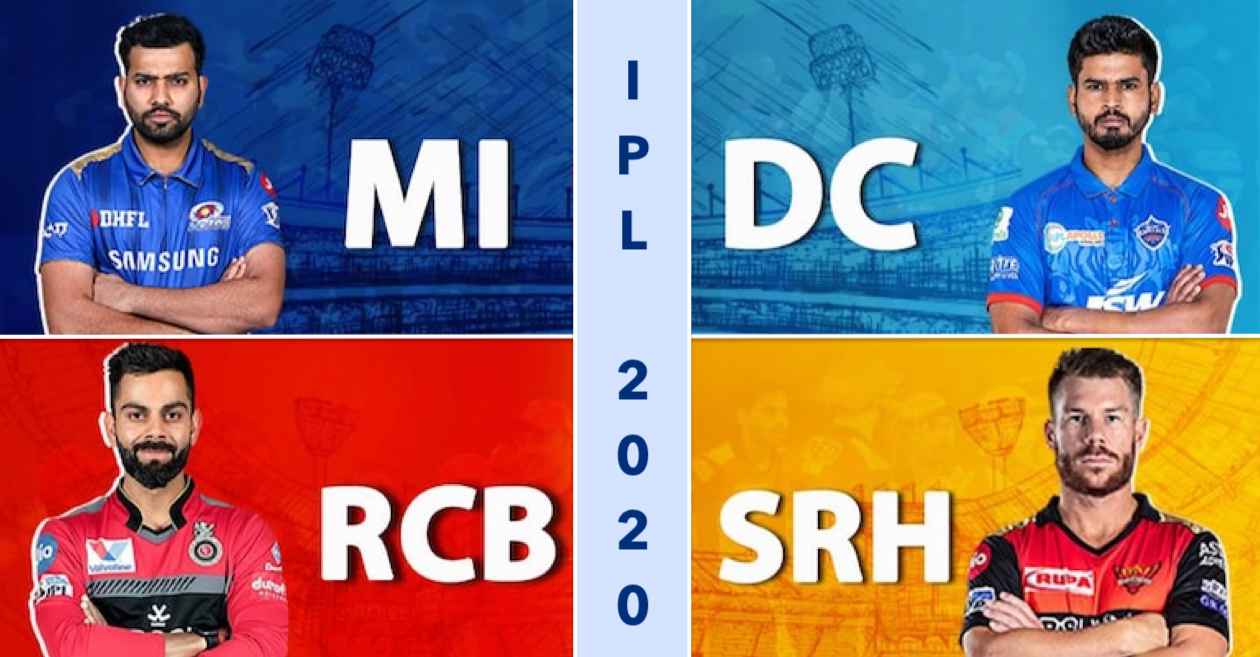Table of Contents
Sunrisers Hyderabad (SRH) thrashed Mumbai Indians (MI) by 10 wickets in Match 56 of the IPL 2020 and marked the end of the league stage on Tuesday. After 56 matches in the league stage, the top four teams in the points table have eventually qualified for the playoffs which will start from Thursday (November 5).
IPL 2020 playoff fixtures:
Qualifier 1, Mumbai Indians vs Delhi Capitals (Nov 5)
Defending champions MI, who topped the points table, will lock horns with Delhi Capitals (DC) in Qualifier 1 for a place in the final at the Dubai International Cricket Stadium on Thursday. The loser of the first Qualifier will get another chance of making it to the final by facing the winner of Eliminator which will take place between SRH and Royal Challengers Bangalore (RCB),
Eliminator, Sunrisers Hyderabad vs Royal Challengers Bangalore (Nov 6)
SRH will face RCB in the Eliminator on Friday (November 6). The team losing this match will be knocked out of the tournament. The winner of this match will play Qualifier 2 with the loser of Qualifier 1.
Qualifier 2 (Nov 8)
Qualifier 2, which will feature the loser of Qualifier 1 and winner of the Eliminator, is scheduled to be held in Dubai on Sunday (November 8).
IPL 2020 Final
The final and the most crucial juncture of this T20 extravaganza will be played between the winner of Qualifier 1 and the winner of Qualifier 2 at the Dubai International Stadium on November 10 (Tuesday).
What is a Super Over?
The Super Over is basically used to determine the winner of a T20 match in case the scores of both teams at the end of the game are tied. The team which batted second in the main innings gets to bat first in the Super Over. If a team loses two wickets in the Super Over, the innings ends. At the end of the Super Over, the team with the most runs is declared the winner.
If Super Over scores are also tied
If the teams score the same number of runs in their Super Overs, the Super Over will be repeated until one team wins.
Rules for the second Super Over
According to the lawmakers, any bowler who has already delivered a Super Over in the match is not eligible to bowl any other Super Over. Likewise, any batsman who gets out in a Super Over can’t bat in the next Super Overs.
